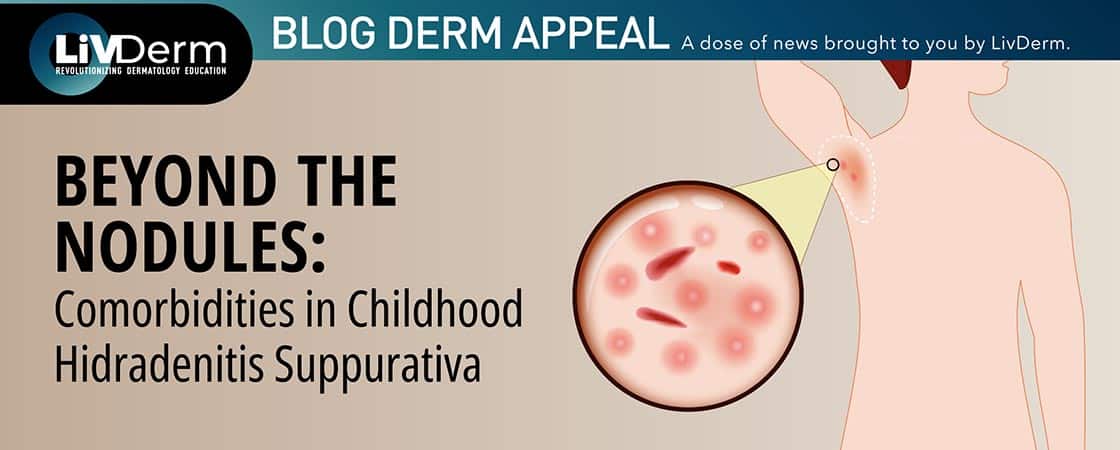The U.S. Food and Drug Administration (FDA) has approved the first systemic treatment for the distressing autoimmune disease alopecia areata, more commonly referred to as just alopecia. This new drug, developed by Eli Lilly, is called Olumiant (baricitinib) and takes the form of a once-a-day pill. The approval of this drug by the FDA is seen as a significant breakthrough for patients living with this autoimmune disorder as well as for their caregivers.
What is alopecia areata?
Alopecia areata (AA) is an autoimmune disorder which causes the immune system to attack the body’s own hair follicles, causing people to lose their hair. “Alopecia” is the Latin word for baldness and “areata” makes reference to the patchy nature of hair loss typically associated with the condition. The severity of alopecia differs from person to person with some losing more hair than others. There are also cases where the hair grows back after a certain period of time.
There are a few types of the condition, the most common being the primary form of AA itself where hair loss occurs in clumps, leaving bald patches on the head. The other, more rare types of the condition are:
- Alopecia totalis – the complete loss of hair on the head
- Alopecia universalis – the loss of hair over the entire body
- Diffuse AA – the sudden thinning of the hair
- Ophiasis AA – hair loss in a band shape around the back and sides of the head
Affecting more than 6 million people in the United States, AA can affect anyone of any age, however, most cases typically develop in patients before age 40. Although researchers do not fully understand what causes AA, they tend to agree that both genetic and environmental factors come into play. This is due to the fact that it is more common in people with a family history of the disease. People who suffer from other conditions such as psoriasis, thyroid disease or vitiligo are also more predisposed to AA. It is also possible that factors such as emotional stress or physical injury provoke the immune system to formulate an abnormal reaction, attacking the hair follicles.
People who suffer from AA are typically otherwise healthy. Aside from the hair loss and bald patches of skin, the disease can also lead to brittle toenails and fingernails, making them appear red and pitted. Additionally, in some cases, people may experience a burning or tingling sensation just before their hair falls out.
Effects of AA
Although AA is not generally considered physically painful, it can cause significant changes in a person’s appearance which can have devastating effects on their self-esteem and quality of life. As a result, some people may experience depression or other psychological problems, including suicidal tendencies.
According to the National Institute of Mental Health, people with chronic medical conditions are more likely to become depressed than people who do not experience serious health issues. The National Alopecia Areata Foundation explains that people with AA commonly report feeling alone and isolated, embarrassed, angry and even guilty for how the disease affects their loved ones.
The new drug
For many years, treatment for patients with AA included the use of corticosteroids or inflammatory drugs to suppress the immune system. Although many of these helped with hair regrowth, they did not necessarily solve the problem of the bald patches.
The recently approved drug from Eli Lilly has drastically changed the outlook for this condition. The drug itself had already been on the market for a number of years for the treatment of rheumatoid arthritis and other autoimmune diseases, yet is now going to be playing a leading role in providing a more positive and viable option for these patients.
Baricitinib is a Janus kinase (JAK) inhibitor, a class of medicine which blocks the activity of one or more of a family of enzymes, essentially preventing the immune system from attacking the body’s hair follicles. The drug comes in the form of a once-daily pill for the treatment of severe AA in adult patients.
Two clinical trials involving a total of 1,200 patients with severe AA were instrumental in gaining FDA approval for baricitinib’s use in AA. After 36 weeks, almost 40% of those patients on a higher dose of the medication saw an 80% hair regrowth compared to only 5% of those who took a placebo. After a year, nearly half of those patients had their hair back.
Brett A. King, MD, PhD, associate professor of dermatology at the Yale School of Medicine, is a pioneer in the use of JAK inhibitors in cutaneous diseases as well as the leading investigator in the Eli Lilly clinical trials. Dr. King also forms part of LiVDerm’s esteemed faculty, along with Maria K. Hordinsky, MD and Brittany G. Craiglow, MD. Dr. Hordinsky, who was also pivotal in Eli Lilly’s clinical trials for baricitinib, is professor and chair of the Department of Dermatology at the University of Minnesota Medical School as well as director of its Clinical Research Division. Dr. Craiglow, who is widely recognized for her expertise in dermatology, including the treatment of AA, has also played a large part in the clinical trials. Both Dr. King and Dr. Hordinsky also serve on the clinical research advisory board for the National Alopecia Areata Foundation.
Dr. King had previously stated that, “Alopecia areata is a crazy journey, marked by chaos, confusion and profound sadness for many who suffer from it.” This week, Dr. King announced,
“The approval of baricitinib for severe AA earlier this week means, for the first time, there is effective treatment for patients with this awful disease. It’s a huge advancement.”
– Brett King, MD, PhD
He has also noted that both Pfizer and Concert Pharmaceuticals have similar drugs in development which could soon be approved by the FDA.
Key takeaway
As the first and only FDA-approved systemic treatment for AA, baricitinib marks a milestone in the treatment of more severe cases of this disease in adults. It is a remarkable step forward, giving new hope to patients who may have previously shied away from public interaction due to their appearance. This new drug can not only give patients back their hair, but it can also provide them with renewed quality of life.
Sources:
- https://www.fda.gov/news-events/press-announcements/fda-approves-first-systemic-treatment-alopecia-areata
- https://www.nejm.org/doi/full/10.1056/NEJMoa2110343
- https://www.nytimes.com/2022/06/13/health/alopecia-drug-approved-fda.html
- https://www.webmd.com/skin-problems-and-treatments/guide/alopecia-areata
- https://medlineplus.gov/genetics/condition/alopecia-areata/
- https://www.naaf.org/emotional-wellness
- https://news.yale.edu/2022/03/26/new-trials-alopecia-areata-treatment-are-success
- https://investor.lilly.com/news-releases/news-release-details/fda-approves-lilly-and-incytes-olumiantr-baricitinib-first-and
- https://www.ncbi.nlm.nih.gov/pmc/articles/PMC1261195/

















